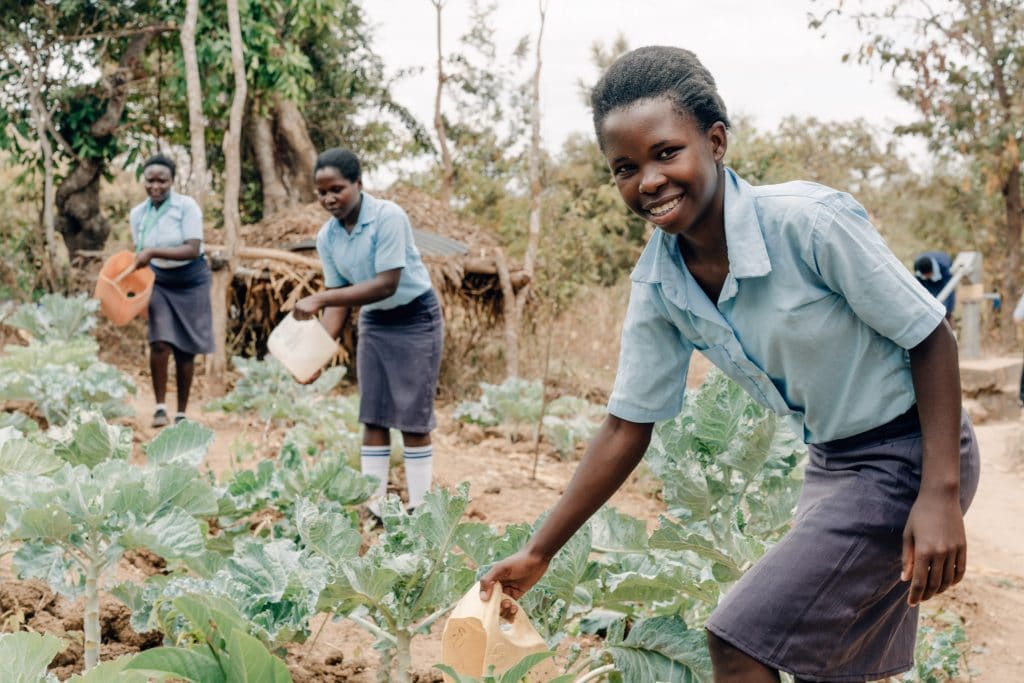- About
- Topics
- Picks
- Audio
- Story
- In-Depth
- Opinion
- News
- Donate
- Signup for our newsletterOur Editors' Best Picks.Send
Read, Debate: Engage.
| December 15, 2015 | |
|---|---|
| topic: | Women's rights |
| tags: | #India, #indigenous people, #Kenya, #Piplantri, #Rajasthan, #Samburu, #Women's Right |
| located: | India, Kenya |
| by: | Vanessa Ellingham |
The women had been raped by British soldiers stationed in the Samburu district where they lived and decided to take a stand. Samburu women were already subordinated through forced marriages, female genital mutilation and the practice of beading that sees girls as young as nine ‘booked’ by older males by placing colourful beads around their necks. Additional necklaces denote status and even sexual prowess – a source of pride for the girls but one that drives a premature sexualisation and allows the men who give the beads the right to take ownership of the girls. Beading is largely backed by elders eager to see their offspring married into relative wealth, but this comes at the expense of girls’ self-determination.
When the women created Umoja village, it was to provide a safe haven. But 25 years on the village is self-sufficient, with women operating every aspect from education to the economy and infrastructure. Their economy is supported by selling the traditional beadwork that once oppressed them, and hosting tourists in their village, which funds a primary school for their girls.
Umoja is home to 47 women and 200 children – men are forbidden to live in the village, but may visit as long as they adhere by the village’s rules, set by the women.
Rebecca Lolosoli, one of the founding members who today serves as the village’s matriarch, explains: “Our objectives are to improve the livelihoods of the women due to rampant poverty and counter the problem of women being abandoned by their families. We also rescue and rehabilitate girls who run away from or were thrown out by their parents due to early pregnancies or marriages.”
Before forming village with likeminded women, Lolosoli had been badly beaten by men in her village, angered that she spoke openly about rape victims needing support. She required hospitalization and when her husband did not back her up, she left him.
“My own husband was not bad,” she says. “We married when I was 18, and he paid a dowry of 17 cows. But four men in the village didn’t like me because I started selling goods, and they beat me up and took my money. Then I started talking about helping the rape victims and the next time my husband left on business, the men beat me severely. I left the hospital and my parents said I should rejoin my husband. He said nothing about what the men had done, and so I realized I could be killed, so I left.”
Umoja of course has its detractors.
“Some men set up a village nearby to block the road and stop tourists from coming here,” Rebecca says. “Once, 30 warriors beat us in front of tourists to make it look like this place was corrupt.”
To counter this, the women saved up and bought the land for themselves – it wasn’t without controversy, but they did it.
While it’s hard to say whether their village’s concept is having any impact on the everyday lives of Samburu women outside, Umoja has sparked two other women-only villages nearby.
Most importantly, Umoja provides a counterpoint. And whether that’s one that a woman can escape to, or one that she just knows exists and that there is an alternative, the example these women have set will stand the test of time in communities that have little contact with the outside world.
Ritual aims to celebrate the girl child
Meanwhile in Rajasthan, India, a village is combating the bias towards male babies by celebrating the girl child with a relatively new set of rituals.
In Rajasthan state, female foeticide is still common, with midwives and sex-determination centres playing a part. For those families who do raise girls, many of the poorest families end up marrying off their underage daughters to protect the family from starvation, halting the girl’s education and stopping any chance at self-determination.
But not in Piplantri village where every time a girl child is born, 111 trees are planted in celebration, creating a ritual to celebrate girl babies equal to the way boys have been celebrated for generations.
Along with the ritual, the villagers contribute a sum of about 220 GBP, with the parents adding another 100 GBP, which is put in the bank on fixed deposit until the girl turns 20. The parents sign a contract agreeing to provide her with an education and not to have her married before the legal age.
In six years, the people of Piplantri have planted a quarter of a million trees – 111 for each girl baby and 11 for each person who dies. The planting has served to green up the village and provide a common interest and goal in the community, which hasn’t seen crime in almost eight years – largely because of the new way of life.
Today Piplantri celebrates the birth of a baby girl in an equal way to how baby boys have been celebrated for years, because the people there recognize equality and the part they can play in determining that for their children – male and female.
Related stories:
By copying the embed code below, you agree to adhere to our republishing guidelines.

